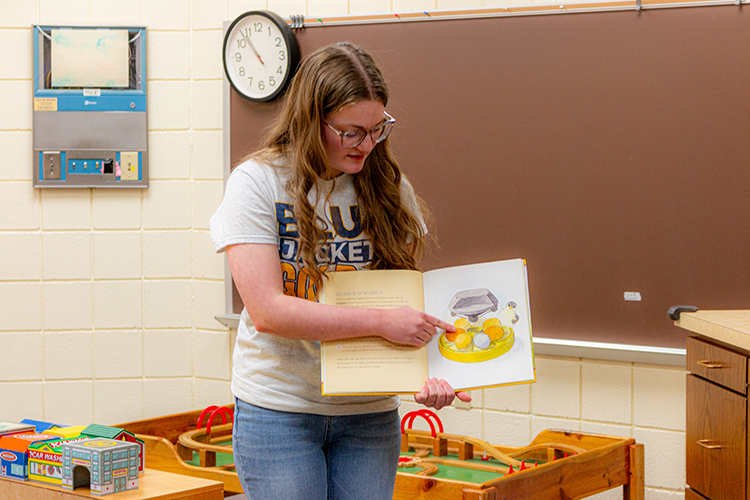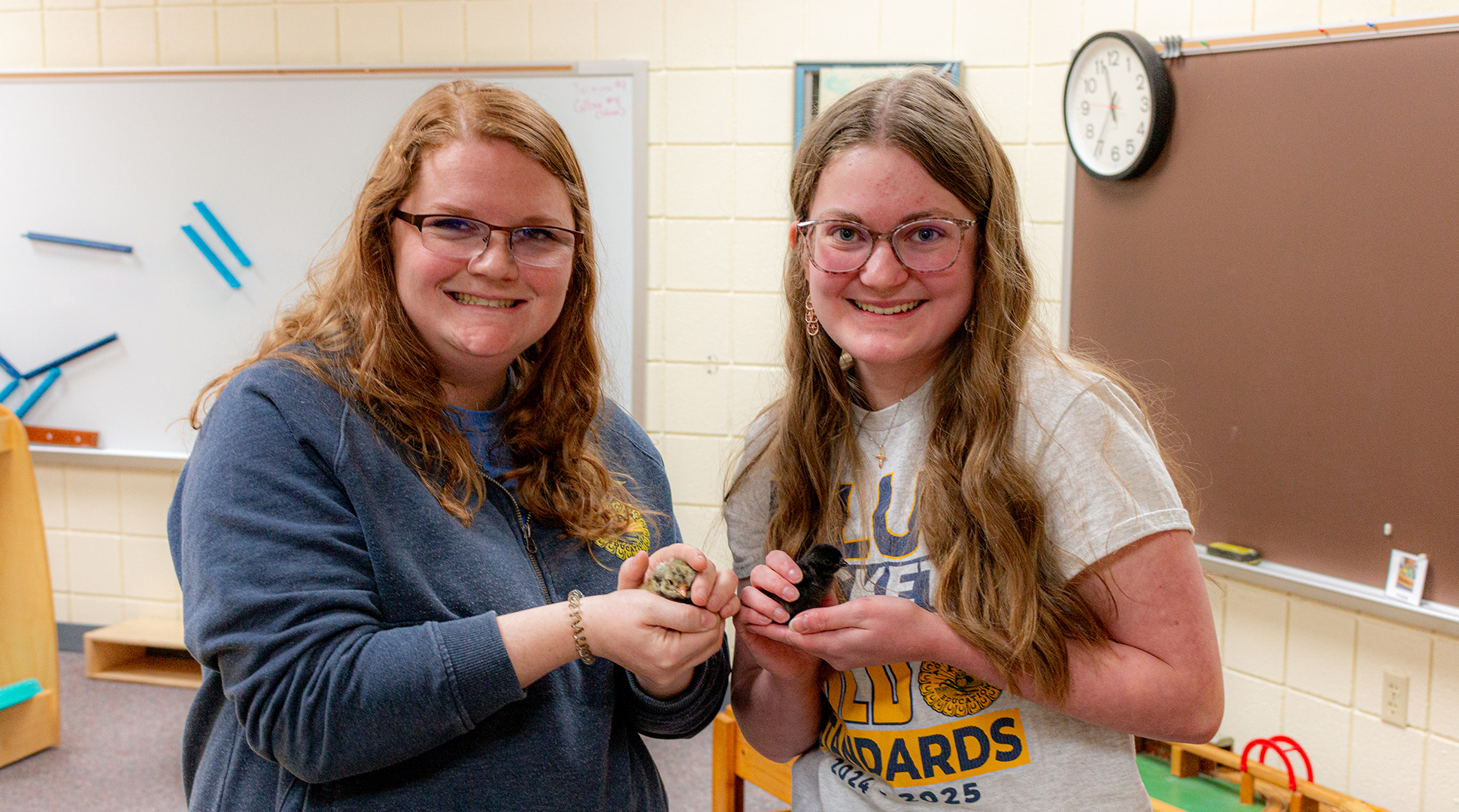The author, left, with Kristyn Bauer, FFA 2025 Star Agribusiness recipient
By Kayla Hart
Agriculture today is more than crops and cattle — it’s science, innovation, and leadership. And none of it is possible without education.
As Program Coordinator for the North Dakota FFA Foundation, I see firsthand how Career & Technical Education (CTE) and Agricultural Education are shaping the future of our workforce, especially in rural communities. These programs do more than teach. They build skills, ignite passions, and create clear paths to careers in everything from animal science and mechanics to biotechnology and agribusiness.
CTE provides real-world learning that students can immediately apply. Whether it’s through Supervised Agricultural Experiences (SAEs), classroom projects, or leadership events, students gain practical tools and confidence that carry well beyond high school.
For example, a student from the Richland 44 FFA chapter launched a wildlife production SAE, preserving animal skulls. (See video below.) That project earned him a feature on RFD-TV and launched a taxidermy and wildlife biology business. Another student created and sold hatchery kits to classrooms, eventually becoming a STAR Farmer finalist. One more restored antique tractors, which led directly to a scholarship and job offer.

Kristyn Bauer of the Beulah FFA Chapter received the 2025 Star for Agribusiness at the FFA State Convention in early June.
These aren’t just student projects; they are career starters and proof that these programs work.
In North Dakota, we’re facing a growing shortage of educators, especially in CTE fields like Ag Education, Family & Consumer Sciences, and Marketing. These teachers are the bridge between education and industry, preparing students to contribute meaningfully to our rural economy.
Education and agriculture are the two backbones of our state, and they are deeply connected. Ag Ed classrooms often serve as the heart of a school, particularly in smaller communities, where they fuel local economies and preserve our way of life.
I believe in this work because I’ve lived it; first as a student, now as an advocate. The impact of these programs doesn’t stop at graduation. It carries through lifetimes, families, and communities. And in agriculture, that kind of investment matters.
As the saying goes, "The best way to predict the future is to cultivate it."
In the video above, Eric is using dermestid beetles to clean wildlife skulls, preparing them for educational purposes.
In addition to her role at the ND FFA Foundation, Kayla is the District 5 representative on the NDFB Young Farmer & Rancher Committee.
